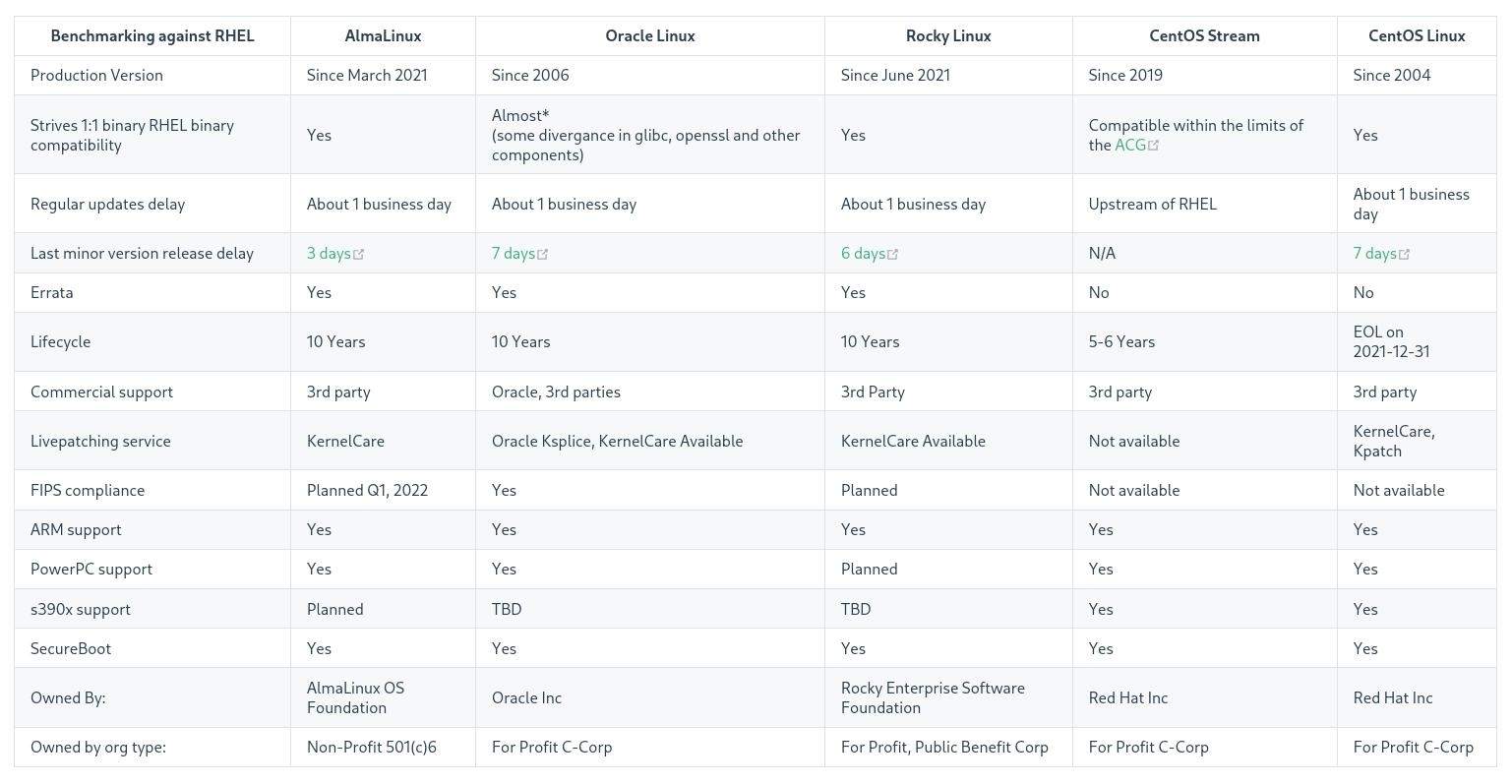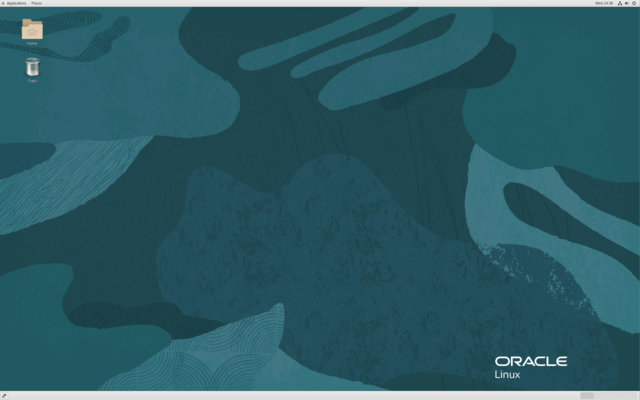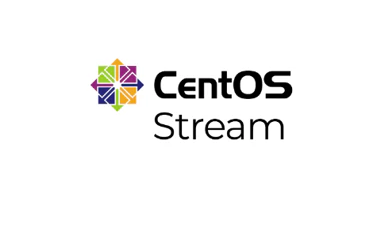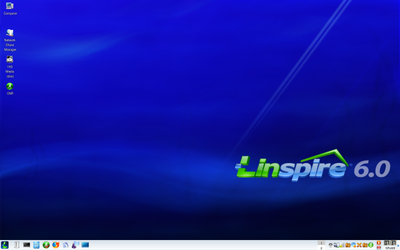Alternatives to CentOS -- After The Storm by vyas
Alternatives to CentOs- After The Storm
Welcome to this first post of 2022 on the LES Blog!
Nearly 14 months have passed since the seminal announcement by Red Hat about the End of Life (EOL) for CentOs8. The much loved server oriented Linux distribution did reach it EOL on December 31, 2021. Over this period, how have the users coped up? What are the alternatives they have settled for? Did the predictions of doom and gloom really come true? Finally, which of the several alternative projects have made the greatest headway or found the highest user acceptance? Read on to learn more. 
Source: Wikimedia Commons
You can listen to the audio version of this post at (External Link)
In This Post
- Background: RedHat Discontinues development for CentOs8
- Every Adversity is an Opportunity
- Do We Have "Good" Alternatives?
- Alma Linux and Rocky Linux
- Other Alternatives to CentOs8
- What About CentOs Stream and CentOs7?
- Wrapping Up: End of CentOs8 Era
- Optional reading - For Fun's Sake
Background: December 2020- CentOs project closing its doors
In early December 2020, the folks at Red Hat Linux had made the announcement that CentOS 8, the latest version of the open source server oriented operating system, would reach its end of life on December 31, 2021. Development of Centos 9 would stop. CentOs project would focus on something called CentOs Stream, instead of a server distribution that was downstream of Read Hat Linux.
Naturally, there was a lot of hue and cry among the users of CentOS in particular, and the open source community in general. The recurring view expressed was that an open source project that was backed by a large company, which decided to shut it down, leaving the users abandoned. The large company, Red Hat Linux, had itself been acquired by a much bigger tech company, - none other than Big Blue a.k.a IBM.
Every Adversity is an opportunity?
Since the day of the announcement, several expected and un-expected things happened.
a. There was an uproar in the tech community, and discussions on Reddit and web hosting forums, including this one.
b. Two new major projects were announced: Rocky Linux and Alma Linux. Both are backed by well known names in the Linux world. The trend of announcing new alternatives to CentOS continues. As recently as January 2022, SuSe Linux have proposed their own alternative to CentOs, called Liberty Linux. And if you scroll below to the "Piece De Resistance" section below, you may be in for a surprise.
c. Media houses, publications, bloggers and YouTubers all began to come up with "Alternatives to CentOs" type of posts. Some posted good alternatives, others simply drew up a random lists of operating systems which included Windows 10!
d. Competitors such as Oracle began to run promotions trying to woo away users into the fold of Oracle Linux.
They say, every adversity is an opportunity. Maybe for the real change makers over the long run. In reality, in the short term, it is the opportunists who can also benefit.
What turns out to be true in this case? Read on to find out...
It's good to have alternatives... but do we have "Good" alternatives?
My main intention here is to see where things stand nearly 14 months after the Red Hat announcement was made. In early February 2022, we will be in the fifth or sixth week since CentOs 8 reached its end of life. given this timeline, some of the questions I was keen to understand were:
a. Many alternatives to CentOs were proposed as in the multiple lists prepared by different publications. You can read some of them here and here. Have the users really migrated to one of the many alternatives that are that were proposed?
b. What made them choose one option over another? Did any move to CentOs Stream?
c. What is the feedback about these alternatives? Which one really gained traction among the users?
Taking a Look: User feedback and beyond
Alma Linux and Rocky Linux - The Dynamic Duo
While researching for this article, it has become evident that the two most popular CentOS alternatives are AlmaLinux and Rocky Linux. The former is created by the folks at Cloud Linux, while the latter is set up by one of the original co-founders of CentOS.
No matter which publication or resource once one looks at, these two names keep coming up right at the top.

Source: Alma Linux
Alma Linux has a very good comparison of features, organizational structure, etc. for some of the alternative If you scroll below, you will find a table comparing the different alternative: CentOs, Alma Linux, Rocky Linux, Oracle Linux and Red Hat . Alma Linux is an open a community based distribution from the folks at Cloud Linux. Rocky Linux is a private limited company started by one of the original co founders of CentOS. The former is a nonprofit, latter is a for profit setup. They both offer scripts that help the users migrate from CentOS to their respective distributions. Compatibility with Red Hat Enterprise Linux support, end of life cycles etc are pretty much identical.
Source: Alma Linux
Some of the limitations of the alternatives were discussed extensively across Reddit, HackerNews and other sources. Some of the below also came up in this discussion right here on LES. They include, in no particular order,
- Community, or lack of
- Longevity of the teams or support from the organizations behind the projects
- Maturity of the products
- Backing by large Corporates. Some people were not happy with Corporate support for some of the newer projects- the Red Hat experience probably left a bad taste.
Computingforgeeks has a good list of features that discusses the pro's and con's of the different alternatives to CentOs. You can also read this discussion on Reddit and on Hackernews. For those who prefer the Video version, here is a decent resource that explains the difference between Rocky and Alma Linux.
Update April 2022: Distrowatch.com in their April 4, 2022 edition of weekly newsletter (Issue 962) mentions an article by FOSS Force which talks about Alma Linux as the most favored replacement for CentOs.
The Next most discussed/ talked about alternatives to CentOs
Based on anecdotal experience and discussion with the LES community, I did not encounter many users who have taken up any of the other alternatives. This includes Oracle Linux. Granted this is a small subset of the user base, it does give a data point to be considered. With that in mind, I am listing a few alternatives that I have come across nonetheless.
Oracle Linux
Oracle Linux is based on Red Hat Enterprise Linux. Oracle even created a page on its website targeting CentOS users. They have developed a script that can convert existing CentOS installations to Oracle Linux. This distribution is free to use, but support contract is available for a charge.
Source:Wikimedia commons
According to the Wikipedia page for this distribution,
Oracle Linux is ..."available partially under the GNU General Public License since late 2006.[4] It is compiled from Red Hat Enterprise Linux (RHEL) source code, replacing Red Hat branding with Oracle's."
Liberty Linux (project by Suse Linux)
This is the newest kid on the block, I had posted about it in the LES forum. Too early to discuss or comment, pending further updates, I will leave you with the link to the LES discussion.
Springdale Linux
This is a project by the members of the computing staff of Princeton University and the Institute for Advanced Study, this was earlier known as PUIAS Linux. They describe themselves as a "Custom Red Hat based Distribution and Mirror." Among other things they have an Interesting Webpage !! The design reminds us of the early years of the World Wide Web.
visit Springdale Linux to learn more.
ClearOS
ClearOs offer commercial and community edition, as per the discussion on ClearOS forums, this may not be a long term viable alternative
VZLinux
This is a CentOs based distribution from folks at Virtuozzo. You can download the image files from:
https://repo.virtuozzo.com/vzlinux/8/iso/
Other than the above, I did not find much written or talked about this alternative to CentOs.
Fedora Server
Fedora is primarily a desktop oriented distribution, and a server version of Fedora, while possible and even capable, does not make a lot of sense. Atleast to me. According to one of the posts I came across on the topic,
Fedora server also follows short lifecycle. It is a community-supported operating system. Paid or commercial support option does not exist, and the lifecycle makes it less appealing as an alternative.
What about CentOs Stream?
Would you really consider moving to CentOS Stream for your servers? I have not found a definitive "Heck Yes" or "Hell, No!" answer to this query. Nor have, it appears these guys.
Source: Postgresweb
Are you perfectly happy with CentOs 7?
If you are happy with CentOs7, or belong to the if-it-ain't-broke-don't-fix-it school, then you have atleast 30 plus months of updates for CentOs coming from Red Hat. The Frequently Asked Question page on CentOs site confirms the same. In that case, should the EOL for CentOs 8creally be a concern for you?
And now, the pièce de résistance: A server Linux distribution from Microsoft
This one is real guys, and no more a joke in the Linux and open source communities. (Anybody remember Lindows.. er.. Linspire?)
edit: The project is still alive! That's cool.

Source: Wikipedia
The Linux distribution from Microsoft, called CBL-Mariner, is based off Fedora and Linux From Scratch. Form the github page for CBL-Mariner, https://github.com/microsoft/CBL-Mariner
CBL-Mariner is an internal Linux distribution for Microsoft’s cloud infrastructure and edge products and services. CBL-Mariner is designed to provide a consistent platform for these devices and services and will enhance Microsoft’s ability to stay current on Linux updates. This initiative is part of Microsoft’s increasing investment in a wide range of Linux technologies, such as SONiC, Azure Sphere OS and Windows Subsystem for Linux (WSL). CBL-Mariner is being shared publicly as part of Microsoft’s commitment to Open Source and to contribute back to the Linux community. CBL-Mariner does not change our approach or commitment to any existing third-party Linux distribution offerings.
Wrapping it up: Nearing the end of the CentOS Era
It is great to see several alternatives for CentOs, which is one of the beauties of the Open Source world. The challenge, as always, is that it presents a problem of plenty. Many folks in the LES Community- web hosts or the advanced users who used CentOs previously, seem to have converged towards Alma Linux or Rocky Linux. Among the rest of the list- Oracle Linux might have some users, given that many members on both the green forums have atleast one instance of Oracle Free tier.
I hope that this post has captured the "After the Storm" scenario since CentOS8 reached EOL. Over the long run, I intend it will offer a handy resource for the LES community. In addition to the top two alternatives (Rocky Linux and Alma Linux), there is a long tail of "also consider" alternatives. Which is one of the real beautiful things about the Linux and Open Source world.
Further (Optional) reading: FFs (For Fun's Sake)
While researching for this post, the search results threw some junk posts. I am adding a few of them below to add a flavor of humor. For example, really useless practices by some of the reviewers and authors. These included:
Some reviewers did a desktop review of Alma Linux, as in literally installing graphical interfaces. They spent a lot of time talking about how GNOME performed on this distribution versus KDE. One person even, did a screen capture of games being played on Alma Linux. Not sure if any server admins run GUI or play Steam games on their production servers.

Source: HowtoShout
The Techmint guys aren't too far behind : https://www.tecmint.com/wp-content/uploads/2021/06/AlmaLinux-Desktop.png
Windows 10 as an alternative to CentOS? Really??
g2 smokes some cheap stuff.
The Roll your eyeballs version
Simply copy and paste names of popular Linux distributions, and not really doing any favor to the reader. Hostingseekers, you need therapy
Author's Note:
I put together this post with the intention of creating a handy resource for readers here on the Low End Spirit blog. I am not a user of CentOS or any of its derivatives. Even though I began my Linux Journey with Red Hat 6 (Zoot), my poison of choice for many years has been Debian. Or, grudgingly, I use Ubuntu LTS where the Software as a Service (SaaS) vendors require me to use it.
This post presented an opportunity first and foremost to understand what is going on in the CentOS world, or the CentOS extended universe. (To borrow a phrase from the Marvel Universe). I have not done any installation or testing of my own for the purposes of this article.My interest was mainly in understanding what has been the market acceptance over the past few months. One hopes that has been served well.
For any questions or comments, write to me at [email protected]
VPS reviews | | MicroLXC | English is my nth language.




Comments
debian. thx.
preferred centos until it went up stream, now Debian thx
I bench YABS 24/7/365 unless it's a leap year.
Nice post. Pity the formatting doesn't work very well on dark mode, though.
Headers are gray on darker gray, some graphics with transparent backgrounds are hard to see.
Some examples:

Agreed. Will be taking a stab at cleaning up some of the dark mode CSS soon (header color being one of the things I'd like to alter).
I'll have to see what can be done about images with transparent backgrounds.
Humble janitor of LES
Proud papa of YABS
For me, f.lux beats any dark mode and similar (tastes and eyes differ, so your preference may not be the same):
https://justgetflux.com/
BikeGremlin I/O
Mostly WordPress ™
Great write-up. I'm sticking to CentOS 7 and probably migrating straight to Rocky 9. Hopefully we have a clearer picture by then.
It's worth mentioning that not only Microsoft CBL Mariner but also Amazon Linux are RPM based. ;-)
Night light (Windows)/Night shift (MacOS) not cutting it for you?
I've been using Debian for my servers since day 1. It's got the same level of stability and backing as CentOS had and I've had no issues with it that wasn't caused by my own stupidity. If Debian were to suddenly die off, I am not sure what distro I'd move to. Probably a derivative, but I think it's unlikely we'll see Debian fall by the wayside for another 15-20 years, I think, if not longer.
Cheap dedis are my drug, and I'm too far gone to turn back.
Using Linux Mint mostly.
But yes, later Windows versions do have that sorted out quite decently out of the box if memory serves me correctly.
Never used Mac - it's for the (wanna be) rich people.
BikeGremlin I/O
Mostly WordPress ™
Came here for this, wasn’t disappointed. Hurrah for the LE*
we're all creature of habits, aren't we?
i use Devuan btw
https://microlxc.net/index.php?p=deploy
Congrats @vyas on nice article! Congrats @Mason and @mikho on new format! Yaaay!!! 🆗🎉😁🍰👍
Tom. 穆坦然. Not Oles. Happy New York City guy visiting Mexico! How is your 文言文?
The MetalVPS.com website runs very speedily on MicroLXC.net! Thanks to @Neoon!
Had the same opinions about Macs for a very long time, then I just so happened to pick up a Macbook Air at a sale and I'd dare say Apple products actually make your computing experience very enjoyable
We'll see. Doesn't fit my long-term plans for now.
BikeGremlin I/O
Mostly WordPress ™
i started with my Linux journey with Ubuntu then CentOS 5 or 6 and now Debian+LXCE or Alpine on most servers.
Thanks for the article and personal touches.
You forgot to mention a major alternative: RHEL free tier. Up to 16 production servers, that easily covers most Cent-OS users.
Thanks for mentioning- I had it in my notes to add that one- but will do so when the post is updated.
VPS reviews | | MicroLXC | English is my nth language.
Macbook? Tesla? WiFi? Latte?
 )
)
(For the record, for a really long time, I had an opinion similar to @bikegremlin ... but then, Apple Silicon came out, and now I don't think Macs are overpriced pieces of shit anymore :P Still haven't used one personally yet, maybe I'll also stumble upon a sale too some time soon?
Contribute your idling VPS/dedi (link), Android (link) or iOS (link) devices to medical research
I learned the usage of Centos in school.
Because I'm too lazy so I think the change might not happen for a while:-D
So let's say I have a VPS with CentOS 8 installed (which went EOL end of 2021) purely to run ApisCP. Everything else I run is Debian-based so I'm pretty much a CentOS noob.
What should I do? Keep running an unsupported OS? Migrate to something else?
Humble janitor of LES
Proud papa of YABS
RHEL is officially supported by apiscp so you can always switch centos 8 to the free RHEL trial (up to 16 servers)
Convert2RHEL it is!
Humble janitor of LES
Proud papa of YABS
Debian it is.
Yeah just looking at the documentation: "Requirements: 2 GB RAM; 20 GB storage; 1 CPU; RHEL/CentOS 7.4+/8+ or CentOS 8 Stream or Rocky Linux or AlmaLinux; Containers are not supported (Virtuozzo, OpenVZ)". The free tier isn't a trial it's a full subscription license offered through the Developer Program to anyone to use up to 16 servers (which you can see in the screenshots) but support is not included (details here).
If you're moving to Alma or Rocky, then either of these commands will work:
cpcmd scope:set system.distro almacpcmd scope:set system.distro rockyI wasn't aware of convert2rhel, I'll look into adding that as well!
Slightly off-topic I guess -- but did anyone checkout the AlmaLinux 9 beta yet?
https://almalinux.org/blog/almalinux-9-beta-now-available/
CrownCloud - Internet Services | Los Angeles, California | Frankfurt, Germany | Amsterdam, The Netherlands
..and AlmaLinux 9 is released.
https://almalinux.org/blog/almalinux-9-now-available/
VPS reviews | | MicroLXC | English is my nth language.